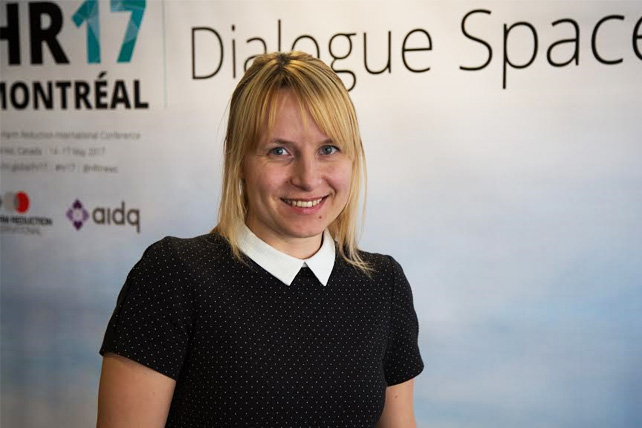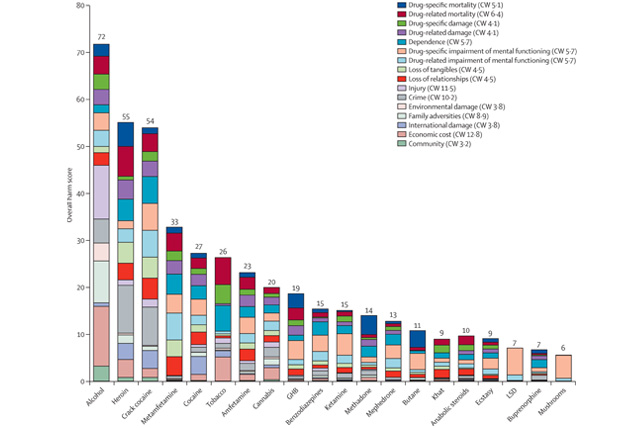Sveta Moroz is the founder and head of the board of Club Svitanok in the Donetsk Oblast, a province in eastern Ukraine which has seen surges of armed conflict – and been partially occupied by Russia – since 2014. Alongside providing support to vulnerable people who use drugs and other key populations, Club Svitanok has undertaken research to investigate the unique struggles faced by women who use drugs (WUD) in the region.
TalkingDrugs: Can you tell me about the work that Club Svitanok does, and how you became involved with it?
Sveta Moroz: Club Svitanok started in 2002 in Ukraine as a self-help group for HIV-positive people who use drugs. Later, we registered as a non-profit community-based NGO. Since that time, the club has organised various HIV-prevention activities, needle-exchange programmes, peer-led and professional counselling, home-based care, as well as advocacy work to promote human rights for people living with HIV – and other key populations – in Donetsk Oblast.
In 2010, Club Svitanok was awarded the Red Ribbon Award by the UN Development Programme and UNAIDS for providing outstanding leadership in our social support for people living with HIV, including orphans and vulnerable children.
TD: How has the conflict affected the challenges faced by women who use drugs in occupied and conflict-affected areas in Ukraine?
SM: The armed conflict has worsened the risk of sexual, physical, and economic violence faced by women who use drugs. It has also negatively impacted WUD’s access to essential healthcare, including HIV treatment and prevention, and opioid substitution therapy (OST).
Many WUD were displaced by the conflict and migrated to other parts of Ukraine, but have subsequently returned after being unable to find housing or employment – a challenge made worse by stigma and discrimination.
WUD are an invisible group for most UN missions and human rights organisations working in the conflict zone. Many women are also torture survivors and are therefore in-need of specialised services – they need psychological and psychotherapeutic support – but none of this is available. No one works with them on their traumatic experience of torture or other violence.
TD: What were the most surprising insights you found during your interviews with women who use drugs in Ukraine’s conflict-affected areas?
SM: We surveyed 150 women who use drugs in Ukraine. Our findings were not surprising, but some were shocking and frustrating – making us realise how much work must be done.
More than half of women surveyed were unemployed, and almost half did not have enough money for food. One-fifth had exchanged sex for money, drugs, or food during the past week. Of the women who had been involved in sex work, two-thirds said they had been forced to provide sexual services – with four women having been subject to this by the police. A total of eight women said they had provided sex to someone working for the police and six for someone in the military.
Over half of women we interviewed had never received drug treatment, and one in eight were denied medical treatment because of their drug use. Among those who knew they had Hepatitis C, 92 per cent had never been treated. Despite the fact that one-third of women had experienced an opioid overdose, only one in 25 had received naloxone during the past year. A quarter of OST clients we surveyed had to interrupt their treatment because of the conflict.
Despite large numbers of women facing sexual or physical violence, none ever received support from a crisis centre for women – or even asked such a centre for help.
TD: How do traditional gender stereotypes impact the treatment of women who use drugs in Ukraine?
SM: Stigma remains a central barrier in receiving state-guaranteed medical and social services for WUD, including obstetric and gynaecological care. Self-stigmatisation and non-compliance with gender stereotypes and expectations about the behaviour of a “good mother” affects relationships with other family members, including children, and is leading to the social isolation of WUD. In some instances, they tolerate gender-based violence against them.
The women we have interviewed are often homeless. Many rely on other family members, leaving them vulnerable to intimate partner violence. They now live in extreme poverty, and simply have no money to pay for rent. Treatment and healthcare is not a priority when your basic needs aren’t met.
TD: What is your favourite song?
SM: Kukushka by Viktor Tsoi


